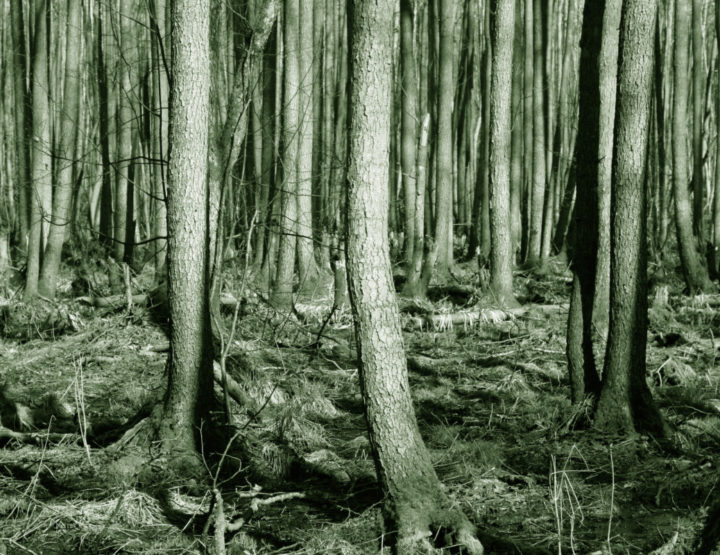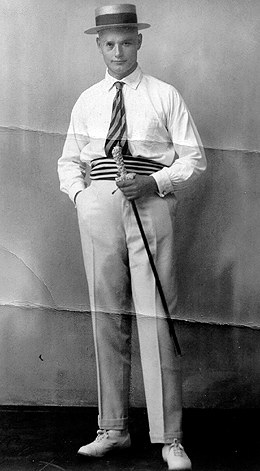It was night – he stopped a while, drew his hand across his forehead, thought briefly, then took the raft over the river. For a long time he walked quietly around the inn, then opened the barn door and stepped inside.
“Anne-Mari,” he whispered, “don’t fear a thief or a burglar, it’s only me. You sleep on, nice and cosy, I mean no harm, just stopped by for a moment, because the soles of my feet seem to be on fire and I cannot find peace anywhere. It’s quite enough if you lend me one ear. You are not angry, Anne-Mari, are you?”
He heard the quiet rustle of hay.
“So you are here,” he continued more cheerfully, “I can feel the warmth of your body and the caressing softness of your hands. You are like a mole under the cover of the earth, and your mischievous eyes sparkle in the darkness. The time will come, Anne-Mari, when I shall carry you in my arms, and your laughter will ring out, loud and clear. And there is no escape, you’re like a perch trapped by its gills – what’s the use, then, of struggling, tossing and twisting. You’d better surrender, praise your kind creator and be happy with your fate!
Today, however, I am sad, feeling like a swan destined to fly south as autumn approaches. The trees have turned a coppery yellow, the purple shrubs are ashamed of their nakedness, their twigs like an old broom bristling towards the sky. Only the rowan trees, full of red clusters of berries, and the dark green branches of firs and pines sway grimly in the howling autumn. And the meadows are so brown, so brown and so grey, slopes and hollows brimming with early snow. I am flying, and feel as if everything is already past, as if I’ll never see those woods, those meadows and marshes again – this is the last flight, then farewell. In the distant south, my proud wings will fold forever, and my white neck will droop. Sensing the transience of life, I try to take the last look down, as if wishing to take with me all those places where I’ve flown around so proudly for so many summers. Have you ever heard the song of the swans? It is but a scream, a horrifying, weird, wild scream, as if discarding the last ounce of vitality and joy to the fields below that stare back like a lover grown old.
Grey columns of smoke are ascending from huts and cottages into the crisp autumn air, the dogs bark, caravans move along the roads, rivers and lakes already hide under their icy cover, but all that is so far from me, so far! I still see – but my heart is cold and silent. I cannot, after all, take anything with me, the grave awaits me, and me alone.
Why am I thinking of autumn and transience in mid-summer?
Who knows, dear Anne-Mari – this summer might well be my last journey and my last farewell. What comes next, is something quite different.
These white nights make us sad and crazy.
I’d love to utter only tender words, but my lips reek of rotting corpse. At nights like this, our soul abandons its husk and wanders around restlessly, God only knows along which solitary roads and paths. In which marshes and thickets does it make friends with goblins, ferns and witches, what parties it attends in the company of ghosts! Perhaps it wanders in foreign lands and places where our mind will never take us. Maybe this is why we, northerners, yearn for new countries and new worlds, so that no place feels like home. Even our father’s house is like the shadow of a tree to a gypsy, where he will rest awhile, but never stay. The higher the sun climbs, the more restless we become, we resemble birds caught in a net, eyes bloodshot and mouth full of anguished screams. Our white nights have thus become nights of suffering, anxiety and sadness. The soul has departed, travelling its own course, while the shell, stuck firmly to ground, is distressed and uneasy, because it is rooted to its land like a tree clings with its roots, wishing the soul to return.
This is probably why I cannot keep still either.
I feverishly grasp every thought and plan, totally unable to calm down. One thought chases the other, one venture leads to ten more. I mostly mean well, but it often ends in misery. Just my bad luck, my dear.
I remember something that once happened in town.
One winter’s morning a large company of friends was returning from a night out. We were wearing top hats and white gloves, and we had fine ladies with us as well. Everybody was tipsy, but not too much so, we were frolicking around, laughing, throwing snow at one another. Just as we were crossing Peetri marketplace, I saw a young girl holding a huge basket. The child was blue with cold, her thin fingers like small snakes curled around the handle of her basket. She was shivering in her thin cotton frock, her toes were sticking out from her worn shoes. She was picking horse droppings, used as pig feed by poor people in the slums. I felt sorry for the poor child, and without meaning anything bad, I snatched her basket and began doing her work for her. Many people had already turned up at the market, and quite a few of them stopped to marvel at the unusual sight: a gentleman in a top hat and white gloves picking horse droppings in the street. I was so busy that I failed to hear the first sniggers, the first insults. Within moments, I was surrounded by an angry circle of people. There were apprentices and street sweepers, factory workers and chauffeurs, chimney-sweeps and fruit sellers – they all stood around me and yelled. Somebody pushed me, I fell to the cobblestones, the basket turned over and in an instant I found myself trampled on. Everybody thought it his duty to kick me at least once, as if I were the vilest of the vile. Some time later, when the crowd had dispersed, I saw the same girl standing by the wall. She shook her little fists at me and swore horribly, using words I had never heard before, because I had broken her basket.
You see how the best intentions may turn into the ugliest deeds if you’re out of luck.
Let’s put it like this: I have come here tonight just to say a few nice words to you, and listen to your soft breathing. This is a thought that might come to any decent man, and surely there is no harm in it. Alas, the innkeeper himself, old Küüp, is sleeping here too somewhere, he might wake up and hear a strange man talking. He could well think it’s a thief or someone seducing Anne-Mari, and he could take a heavy stick and beat me to death with it. Later he could then publish a little article in the paper about killing a notorious murderer after a fierce shooting. This may indeed happen if you run out of luck. If luck stays with me, however, thing will proceed quite differently. Like this, for example: I sit here, having a nice friendly conversation, suspecting nothing. Suddenly I hear a weak rustling sound, the door opens, a nasty man enters and heads directly towards Anne-Mari. I recognise Küüp himself. Since I love Anne-Mari who is the dearest person to me in the whole world, I immediately attack Küüp, wring his neck, and a few days later the state awards me a medal. If only luck were on my side.
Oh, Anne-Mari, all this is just said in passing, an introduction to a really beautiful story! I am quite impossible today, my head is like a broken sieve, not keeping a single thought.
Perhaps the true story will not begin till I have built a large house for you, and when you run to greet me, smiling all over, arms stretched out. Then I take you in my arms and tell you the real story. It is really not easy to talk to you when you’re so far, I don’t even know where exactly and how you sleep now. I feel as if I’m talking to the walls, indeed I do.
I want to see you now, just a brief glimpse.
I’m in a rush – so many things to do, so much work to be done!”
He sighed and lifted his eyes.
The early dawn seeped through the small window and the cracks in the walls.
He looked around.
“Anne-Mari!” he shouted, suddenly much agitated. “Anne-Mari, where have you got to?”
He jumped up, casting desperate glances left and right.
The cattle were peacefully munching away in one corner, sheep and oxen stood close together, their heads pressed against one another’s flanks. Hens woke up and flew down from the perch, clucking loudly. A horse occupied another corner.
“Anne-Mari!” cried Nipernaadi. “Aren’t you here? Weren’t you here at all? So I’ve once again uttered my most beautiful words to the sheep, oxen and cattle! And they listen, quietly chuckling, never replying. Oh poor me! Where ever am I going to find a human being who will listen to me? My most beautiful words all gone on the wind.”
***
© ELM no 14, spring 2002




